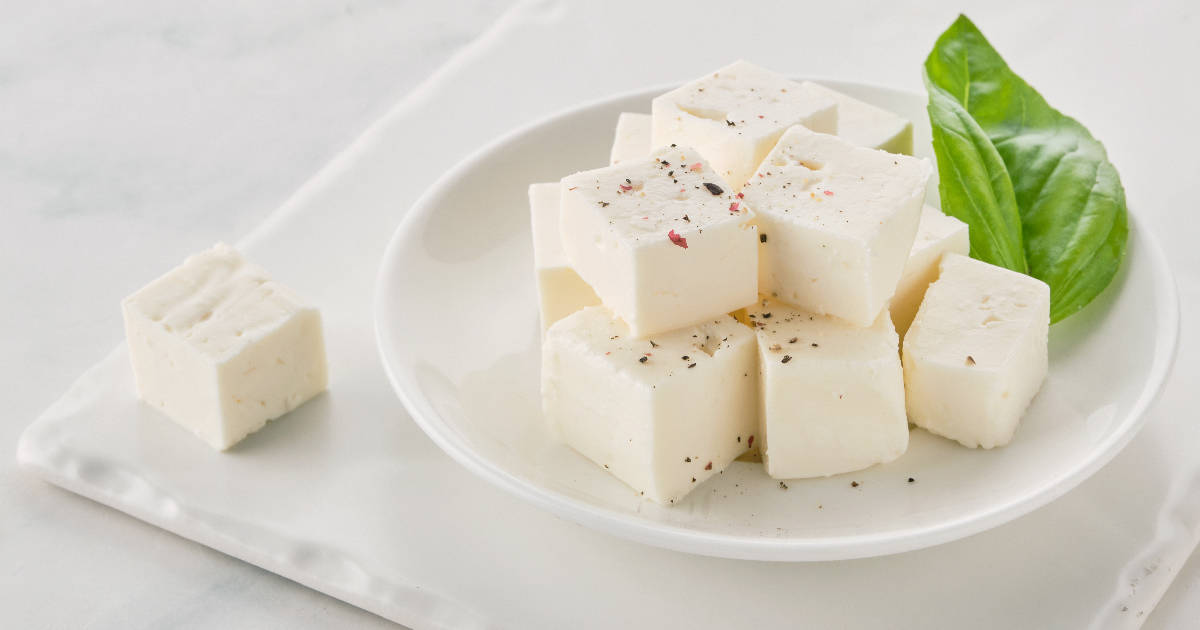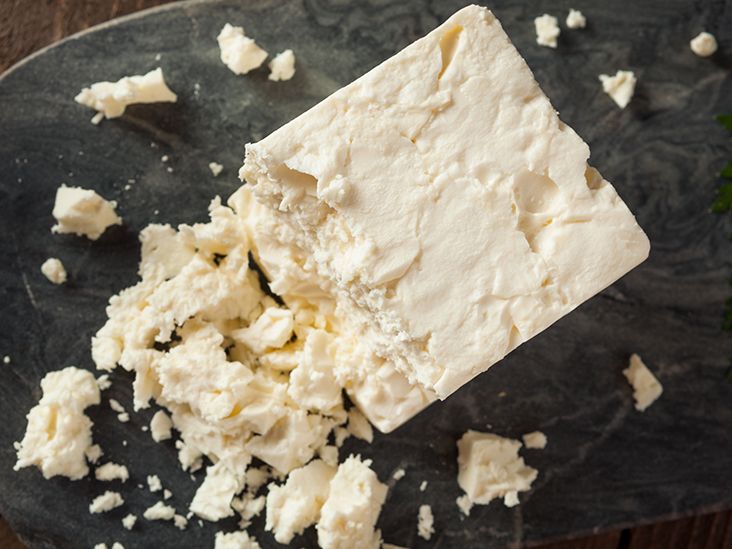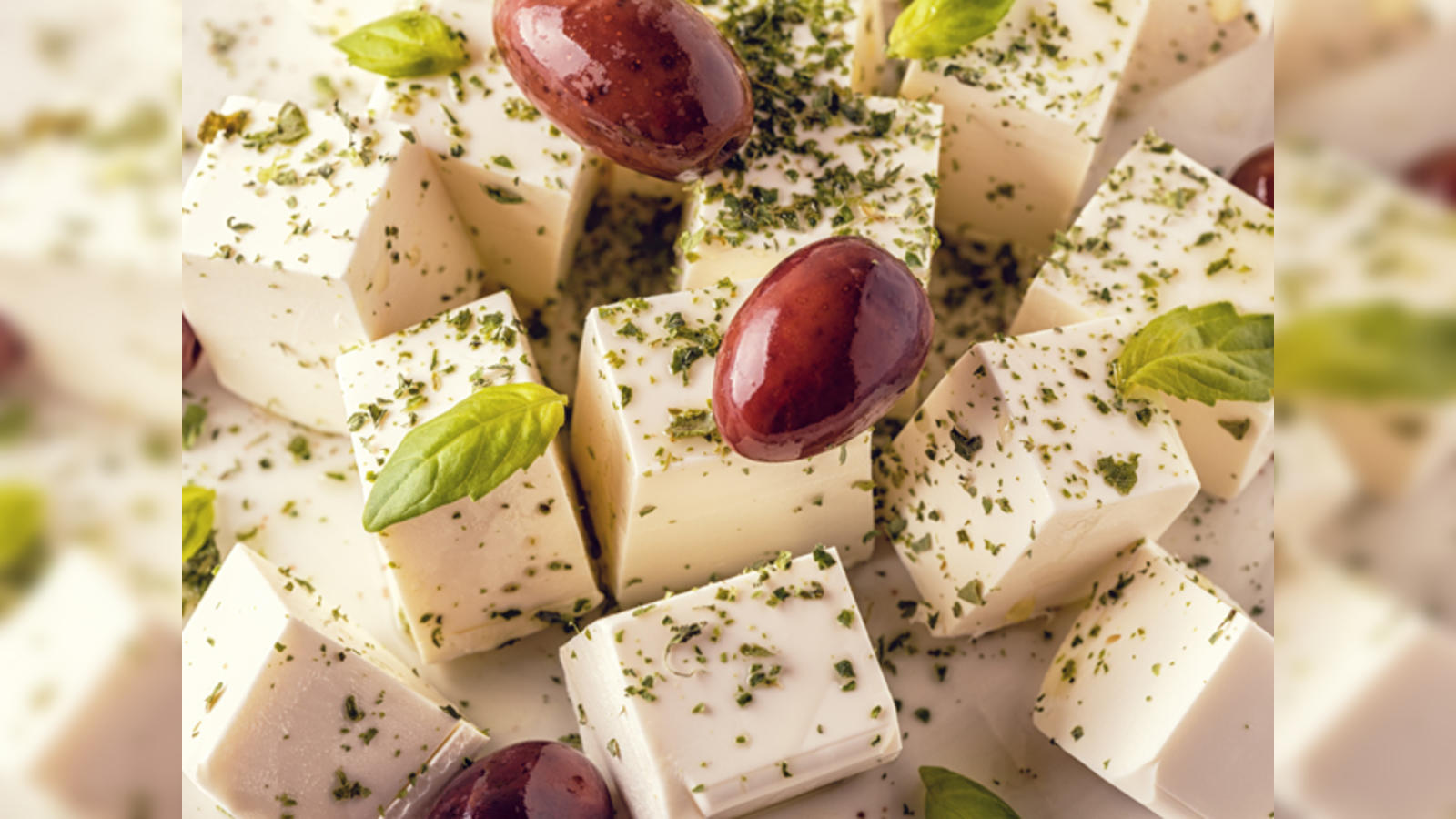Feta cheese, the tangy and crumbly staple of Greek cuisine, has captured the hearts and taste buds of food enthusiasts worldwide. But beyond its irresistible flavor and versatility, feta cheese also boasts a remarkable nutritional profile that can contribute to a healthy lifestyle. In this comprehensive guide, we’ll delve into the world of feta cheese, exploring its potential health benefits, addressing common concerns, and discovering the many delicious ways to incorporate this dairy delight into your diet.
The Nutritional Profile of Feta Cheese: A Closer Look
To understand the potential health benefits of feta cheese, it’s essential to examine its nutritional composition. Traditionally made from sheep’s milk or a combination of sheep and goat’s milk, feta cheese is a nutrient-dense food that offers a range of vitamins and minerals.
One of the most notable nutrients in feta cheese is calcium. A 30-gram serving of feta cheese provides a significant amount of this essential mineral, which plays a vital role in maintaining strong bones and teeth. Calcium is particularly important for individuals at risk of osteoporosis, such as older adults and postmenopausal women.
In addition to calcium, feta cheese is a good source of protein. Protein is crucial for building and repairing tissues, maintaining muscle mass, and promoting satiety. The protein content in feta cheese can help keep you feeling full and satisfied, making it a valuable addition to a balanced diet.
Feta cheese also contains phosphorus, another mineral that works in tandem with calcium to support bone health. Phosphorus is involved in the formation and maintenance of bone tissue, and it also plays a role in energy production within the body.
Furthermore, feta cheese is a source of several B vitamins, including riboflavin (vitamin B2) and vitamin B12. These vitamins are essential for energy metabolism, red blood cell formation, and proper nervous system function. While feta cheese is not the most concentrated source of these vitamins, it can still contribute to meeting your daily requirements.
It’s worth noting that feta cheese is relatively high in sodium due to the brining process used in its production. While sodium is an essential mineral, excessive intake can contribute to high blood pressure in some individuals. As with any food, moderation is key when incorporating feta cheese into your diet.
Feta Cheese and Bone Health: A Promising Connection

One of the most well-established benefits of feta cheese is its potential to support bone health. The calcium and phosphorus content in feta cheese makes it a valuable ally in maintaining strong and healthy bones.
Calcium is the primary mineral found in bone tissue, and adequate calcium intake is essential for preventing bone loss and reducing the risk of osteoporosis. When the body lacks sufficient calcium, it begins to draw the mineral from the bones, leading to decreased bone density and increased susceptibility to fractures.
Phosphorus, another mineral abundant in feta cheese, works alongside calcium to support bone mineralization. It helps to regulate the body’s calcium balance and plays a crucial role in the formation and maintenance of bone tissue.
While feta cheese can be a beneficial addition to a bone-healthy diet, it’s important to remember that a well-rounded approach is necessary for optimal bone health. In addition to consuming calcium and phosphorus-rich foods like feta cheese, it’s essential to include plenty of fruits and vegetables that provide other bone-supporting nutrients such as vitamin C and vitamin K.
Moreover, vitamin D is vital for efficient calcium absorption in the body. While feta cheese does not naturally contain significant amounts of vitamin D, it can be a part of a diet that includes other vitamin D sources such as fatty fish, egg yolks, and fortified foods.
For individuals following vegetarian or vegan diets, feta cheese may not be a suitable option. However, alternative calcium and phosphorus sources can be found in plant-based foods such as leafy greens, fortified plant-based milks, tofu, and nuts and seeds.
Feta Cheese and Muscle Health: A Complementary Protein Source
In addition to its bone-supporting properties, feta cheese can also play a role in maintaining muscle health. The protein content in feta cheese makes it a valuable addition to a muscle-building or muscle-maintaining diet.
Protein is the primary building block of muscle tissue, and consuming adequate amounts of protein is essential for muscle growth, repair, and maintenance. While a 30-gram serving of feta cheese provides around 4 grams of protein, it’s important to note that this is not a substantial amount compared to other protein-rich foods like lean meats, poultry, fish, and legumes.
However, feta cheese can still be a complementary protein source in a well-balanced diet. By combining feta cheese with other protein-rich foods, you can help meet your daily protein requirements and support muscle health.
It’s worth noting that feta cheese is not a significant source of creatine, a compound that has been shown to enhance muscle strength and size when combined with resistance training. If muscle building is a primary goal, incorporating other dietary sources of creatine, such as red meat, or considering creatine supplements (under the guidance of a healthcare professional) may be beneficial.
Feta Cheese and Gut Health: A Potential Probiotic Powerhouse
One lesser-known potential benefit of feta cheese is its impact on gut health. The unique production process of feta cheese, which involves brining, may promote the growth of beneficial bacteria strains, particularly Lactobacillus plantarum.
These bacteria belong to the probiotic family, which are live microorganisms that offer health benefits when consumed in sufficient amounts. Probiotics can contribute to a healthy gut microbiome by competing with harmful bacteria for space and resources, supporting digestion, and boosting immune function.
The presence of probiotics in feta cheese may be particularly beneficial for individuals experiencing occasional digestive discomfort, bloating, or constipation. Additionally, those who have recently taken antibiotics, which can disrupt the delicate balance of the gut microbiome, may find some relief by incorporating probiotic-rich foods like feta cheese into their diet.
However, it’s essential to approach feta cheese as part of a comprehensive approach to gut health. Consuming a diet rich in prebiotics, which are non-digestible fibers that serve as food for probiotic bacteria, is equally important. Fruits, vegetables, whole grains, and legumes are excellent sources of prebiotics that can help support the growth and activity of beneficial gut bacteria.
For individuals with lactose intolerance, feta cheese may still be a viable option due to its lower lactose content compared to other cheeses. The brining process used in feta production can break down some of the lactose, making it more tolerable for those with sensitivity. However, those with severe lactose intolerance may need to opt for lactose-free alternatives or consult with a healthcare professional to determine the best course of action.
Feta Cheese and Immune Function: A Supportive Role

While feta cheese is not a standalone solution for boosting immunity, it may offer some immune-supporting properties due to its probiotic content and the presence of certain vitamins and minerals.
As mentioned earlier, probiotics found in feta cheese can help modulate the gut immune system, which plays a crucial role in overall immune function. A healthy gut microbiome is essential for maintaining a robust immune response and protecting against harmful pathogens.
Additionally, feta cheese contains vitamins B6 and B12, which are involved in various aspects of immune function. Vitamin B6 helps regulate inflammation and supports the production of antibodies, while vitamin B12 is necessary for the proper formation and function of white blood cells, which are the body’s first line of defense against infections.
However, it’s important to emphasize that feta cheese is not a magic bullet for boosting immunity. A comprehensive approach to immune health involves consuming a balanced diet rich in fruits, vegetables, whole grains, and lean protein sources. Other lifestyle factors such as regular exercise, adequate sleep, and stress management also play critical roles in maintaining a strong immune system.
Feta cheese can be enjoyed as part of a diverse diet that includes other immune-supporting foods. Fermented foods like yogurt, kimchi, sauerkraut, and kefir are additional sources of probiotics that can contribute to a healthy gut and immune function.
Feta Cheese and Weight Management: Balancing Nutrition and Calories
When it comes to weight management, feta cheese can be a part of a balanced approach when consumed in moderation. Compared to some other cheeses, feta is relatively lower in calories and fat, with a 30-gram serving providing around 75 calories and 6 grams of fat.
The protein content in feta cheese can also be beneficial for weight management, as protein helps promote feelings of fullness and satiety. By incorporating feta cheese into meals and snacks, you may find yourself feeling more satisfied and less likely to overeat or reach for less nutritious options.
However, it’s crucial to remember that feta cheese is still a calorie-containing food, and portion control is essential for successful weight management. Measuring your feta cheese intake and sticking to recommended serving sizes can help you enjoy its benefits without overconsuming calories.
When incorporating feta cheese into a weight management plan, focus on pairing it with nutrient-dense, low-calorie foods. Crumbling feta over a bed of leafy greens, adding it to a vegetable-packed omelet, or using it as a topping for whole-grain crackers are all smart ways to enjoy feta while keeping overall calorie intake in check.
It’s also important to remember that successful weight management goes beyond just one food or ingredient. A balanced diet that emphasizes whole, minimally processed foods, along with regular physical activity and other healthy lifestyle habits, is key to achieving and maintaining a healthy weight.
Feta Cheese: Separating Fact from Fiction
With the growing popularity of feta cheese, it’s essential to address some common misconceptions and clarify the facts surrounding this beloved dairy product.
One frequent question is whether feta cheese is a good source of calcium compared to other dairy products. While feta does provide a notable amount of calcium, with a 30-gram serving offering around 14% of the daily recommended value, some cheeses like cheddar and Parmesan are more concentrated sources of this mineral.
Another concern is the lactose content in feta cheese. Although feta is generally lower in lactose compared to other cheeses due to the brining process, it is not entirely lactose-free. Individuals with severe lactose intolerance may still experience digestive discomfort after consuming feta and may need to seek out lactose-free alternatives.
Some people also wonder if feta cheese can cause bloating. The lactose content and the presence of certain bacteria strains in feta may contribute to bloating in sensitive individuals. If you consistently experience bloating after consuming feta, it may be worth limiting your intake or exploring lactose-free options.
Regarding the probiotic content of feta cheese, it’s important to note that while the brining process can encourage the growth of beneficial bacteria, the exact probiotic strains and their viability can vary depending on the specific production methods used. Not all feta cheeses are created equal in terms of their probiotic potential.
Lastly, for those following a vegetarian diet, it’s crucial to verify the source of the rennet used in feta cheese production. While traditional feta is made from sheep’s milk or a combination of sheep and goat’s milk, some commercial varieties may use animal-derived rennet. Opting for feta cheeses labeled as vegetarian ensures that the rennet used is from non-animal sources.
Culinary Delights: Enjoying Feta Cheese in Various Dishes

One of the greatest joys of feta cheese lies in its versatility and ability to elevate a wide range of dishes. From salads to sandwiches, feta’s tangy and crumbly texture adds a burst of flavor to any meal.
Greek salads are perhaps the most iconic dish featuring feta cheese. The combination of crisp lettuce, juicy tomatoes, briny olives, and generous crumbles of feta creates a refreshing and satisfying salad that’s perfect for any occasion. Feta also pairs beautifully with watermelon, making for a surprising and delightful summer salad.
For a creamy and zesty dip, blend feta cheese with Greek yogurt, lemon juice, and herbs like dill or mint. This dip is a fantastic accompaniment to fresh vegetables or pita bread, making it a crowd-pleasing appetizer or snack.
Feta cheese is also a star ingredient in many baked dishes. Spanakopita, a Greek spinach and feta pie wrapped in flaky phyllo dough, showcases the cheese’s ability to add a salty and savory element to a dish. Similarly, tyropita, a cheese-filled pastry, relies on feta for its rich and tangy flavor.
Eggs and feta cheese are a match made in culinary heaven. Scramble some eggs with crumbled feta, or fold it into an omelet along with sautéed vegetables for a protein-packed and flavorful breakfast. Feta can also add a delightful twist to quiches and frittatas.
For a quick and satisfying meal, stuff pita bread or wraps with feta cheese, hummus, tomatoes, cucumbers, and greens. The combination of flavors and textures creates a delicious and portable lunch option.
When storing feta cheese, it’s important to keep it in its original brine solution or transfer it to an airtight container filled with fresh brine. This helps maintain the cheese’s moisture and prevents it from drying out. Feta cheese should always be refrigerated and consumed within a week or two of opening for optimal freshness and flavor.
Conclusion
Feta cheese, with its rich history and tantalizing flavor, is more than just a delicious addition to meals. Its unique nutritional profile, which includes calcium, phosphorus, protein, and probiotics, offers a range of potential health benefits, from supporting bone health to promoting a healthy gut microbiome.
However, as with any food, moderation is key. While feta cheese can be a part of a balanced and nutritious diet, it’s essential to be mindful of portion sizes and to pair it with a variety of other nutrient-dense foods.
When incorporating feta cheese into your diet, choose high-quality varieties and store them properly to ensure optimal freshness and flavor. Don’t be afraid to get creative in the kitchen and explore the many delicious ways to enjoy this versatile cheese.
Remember, the path to overall health and wellness involves a holistic approach that encompasses a balanced diet, regular physical activity, and other healthy lifestyle habits. Feta cheese can be a tasty and nutritious addition to this journey, offering both culinary delight and potential health benefits.
So go ahead, crumble some feta over your next salad, or whip up a zesty dip to share with friends and family. By embracing the delicious possibilities of feta cheese while being mindful of moderation, you can savor its flavors and reap its potential benefits as part of a healthy and enjoyable lifestyle.



